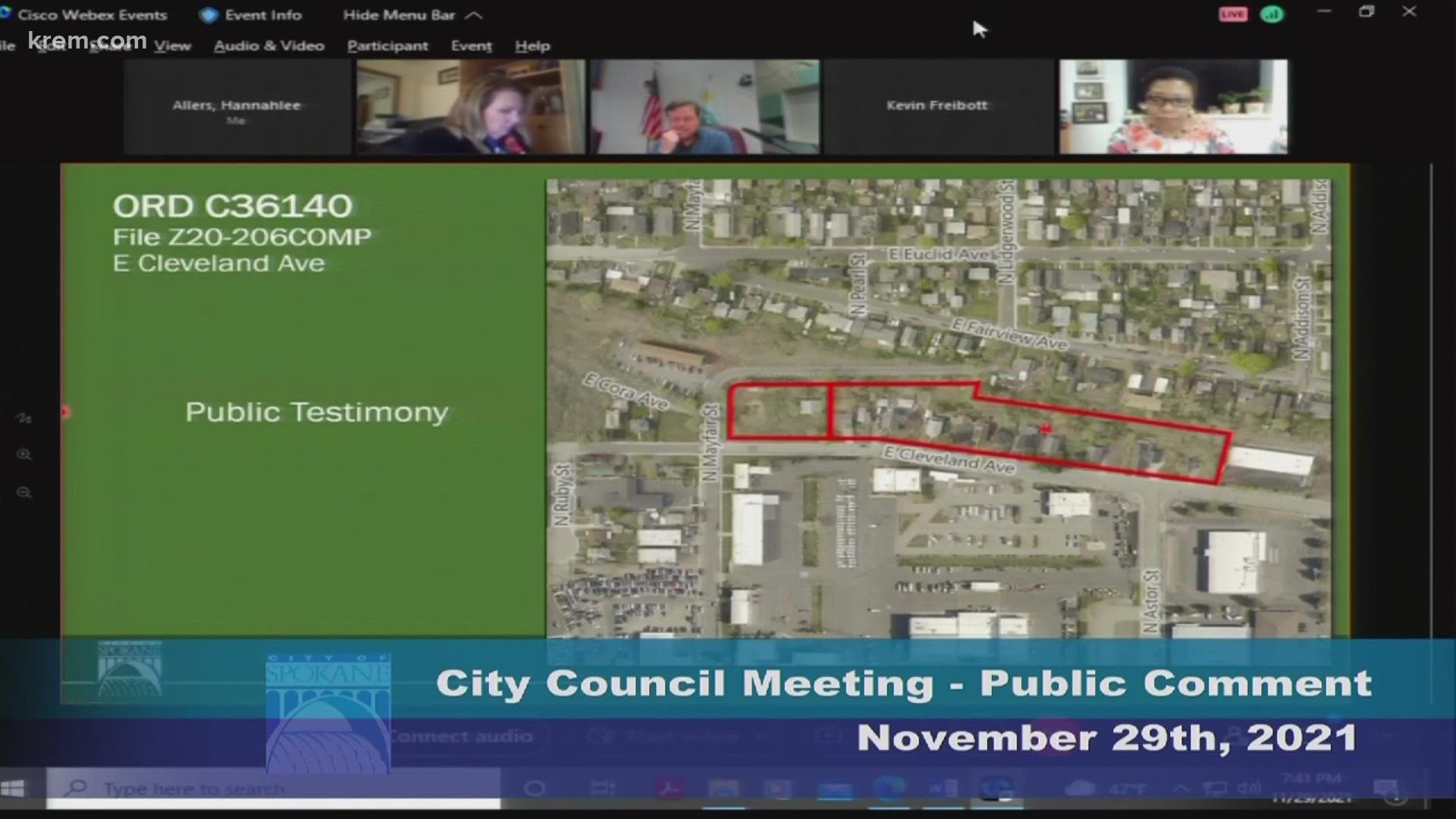SPOKANE, Wash. — The Spokane City Council unanimously passed two zoning change proposals during their meeting Monday night that could lead to more than 100 more housing units being built in the city.
According to Spokane Assistant City Planner Kevin Freibott, the proposals came after property owners asked the city for zoning changes due to the current zoning not allowing for future building plans they had for their property. In all, the council voted on five proposals.
Two of those changes dealt with changing lots to high density or multi-family residential zones. In total, the changes could lead to 110 or more housing units being built in the coming years. According to Freibott, paving the way for more housing has been a priority for the city.
I would say that addressing the housing shortage in the city is a major concern for the city," he said. "It's clearly been declared by both the mayor and the council that these are major issues of concern."
One of the two zoning changes that involve residential buildings affects a lot on East Cleveland Avenue, while the other involves a group of lots on West Sinto and West Maxwell Avenues.
Lindsay Kornegay, a lawyer with Witherspoon-Kelley who represented one of the property owners who asked for a zoning change on East Cleveland Avenue, said her client plans to building more housing units in response to the city's housing crisis.
"We believe that this change will have a positive impact not only on the neighborhood by developing what is currently vacant land, but on Spokane generally, in our present housing crisis, putting otherwise vacant land to its highest and best use should be a priority," she said.
Even with the changes being passed, Freibott said the owners will still have to go through the normal permit application processes before they can start building. He also said that its hard to project how many units this will actually lead to being built, as the numbers given on proposals are a calculation of the maximum amount of units that can be built per acre on the property, and doesn't take into account things such as parking structures and landscaping.
The zoning change proposal process happens yearly, Freibott said, and takes about 10 to 14 months each time.

